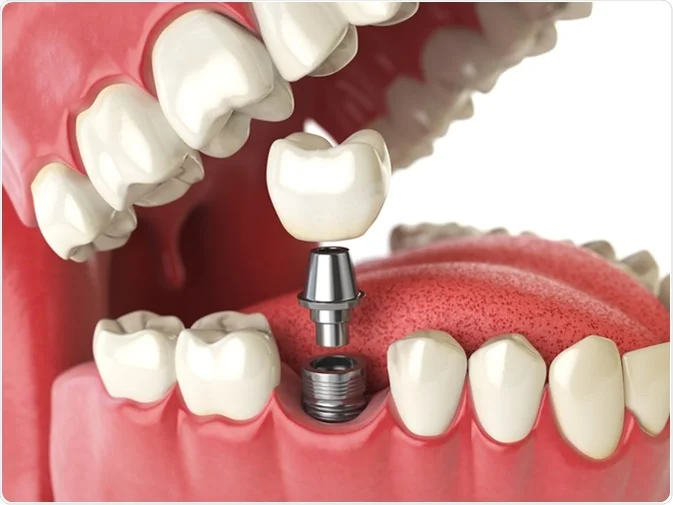Dental implants have revolutionized the way we approach tooth replacement, offering a permanent solution that looks, feels, and functions like natural teeth. But when it comes to getting dental implants, you might be wondering, what type of dentist does implants? This comprehensive guide will walk you through the different dental specialists involved in the implant process, helping you make an informed decision for your dental health.
Contents
Understanding Dental Implants
What Are Dental Implants?
Dental implants are artificial tooth roots made of titanium that provide a strong foundation for fixed or removable replacement teeth. They are surgically placed into the jawbone, where they fuse with the bone over time, creating a durable and stable base for a crown, bridge, or denture.
Benefits of Dental Implants
Dental implants offer numerous benefits, including:
- Improved appearance and self-esteem
- Enhanced speech and comfort
- Easier eating and improved oral health
- Durability and convenience
Types of Dentists Involved in Dental Implants
General Dentists
Training and Qualifications
General dentists typically hold a DDS (Doctor of Dental Surgery) or DMD (Doctor of Medicine in Dentistry) degree. They have a broad understanding of various dental procedures, including basic implant placement, especially if they have received additional training in implant dentistry.
When They Perform Implants
General dentists often handle straightforward implant cases, particularly if they have taken specialized courses or attended workshops focused on dental implants. They play a crucial role in the initial diagnosis and treatment planning.
Prosthodontists
Specialized Training
Prosthodontists are dental specialists who undergo three additional years of training after dental school. They focus on the restoration and replacement of teeth, making them experts in creating and fitting dental implants.
Role in Implant Dentistry
Prosthodontists are ideal for complex cases requiring extensive restoration work. They work closely with other specialists to ensure the best aesthetic and functional outcomes for dental implants.
Oral and Maxillofacial Surgeons
Surgical Expertise
Oral and maxillofacial surgeons have advanced surgical training, typically four to six additional years after dental school. They are skilled in performing complex surgical procedures, including the placement of dental implants.
Complex Implant Procedures
For patients requiring bone grafts, sinus lifts, or other advanced procedures, oral and maxillofacial surgeons are the go-to specialists. Their expertise ensures the safe and precise placement of implants in challenging cases.
Periodontists
Focus on Gums and Bone Health
Periodontists specialize in the prevention, diagnosis, and treatment of periodontal disease, and they have extensive training in the supporting structures of teeth, including gums and bone.
Their Role in Implants
Periodontists are essential in cases where gum health is a concern. They often handle the surgical aspects of implant placement, ensuring the surrounding tissues are healthy and capable of supporting the implant.
The Implant Process
Initial Consultation
Assessment and Planning
The implant process begins with a thorough assessment and planning stage. During the initial consultation, the dentist will evaluate your oral health, take X-rays, and create a treatment plan tailored to your specific needs.
Implant Placement
Surgical Procedure
The actual implant placement involves a surgical procedure where the dentist inserts the titanium post into the jawbone. This is typically done under local anesthesia, and in some cases, sedation may be used.
Healing and Osseointegration
What to Expect
After the implant is placed, a healing period of several months is necessary for osseointegration, where the implant fuses with the jawbone. This crucial step ensures the stability and durability of the implant.
Abutment and Crown Placement
Final Restoration
Once osseointegration is complete, an abutment is attached to the implant, and a custom-made crown is placed on top. This final step restores the function and appearance of your tooth.
Choosing the Right Dentist for Implants
Choosing the right dentist for your implants is vital for a successful outcome. Consider the following factors:
- Experience and Credentials: Ensure the dentist has ample experience and the necessary qualifications in implant dentistry.
- Specialization: Depending on your case, you may need a specialist such as a prosthodontist, oral surgeon, or periodontist.
- Technology and Techniques: Look for a dentist who uses the latest technology and techniques for implant placement.
Finding a Dentist in Eugene or Springfield
Local Recommendations
Start your search for a dentist in Eugene or a dentist in Springfield by asking for recommendations from friends, family, or your primary care dentist. Personal referrals are invaluable for finding a trustworthy practitioner.
Online Reviews and Testimonials
Check online reviews and testimonials to gauge patient satisfaction. Websites like Google, Yelp, and Healthgrades provide insights into other patients’ experiences with local dentists.
Consultation Visits
Schedule consultation visits with potential dentists to discuss your needs and evaluate their expertise. Ask questions about their experience, success rates, and the specifics of your treatment plan.
Conclusion
Dental implants are a fantastic solution for replacing missing teeth, but choosing the right dentist is crucial. Whether you opt for a general dentist, prosthodontist, oral surgeon, or periodontist, make sure they have the right experience and credentials for your specific needs. For those in Eugene or Springfield, leveraging local recommendations, online reviews, and consultation visits will help you find the perfect dentist for your implant journey.
FAQs
How long do dental implants last?
Dental implants can last a lifetime with proper care and maintenance, including regular dental check-ups and good oral hygiene practices.
Are dental implants painful?
The implant procedure is typically performed under local anesthesia, so you shouldn’t feel pain during the surgery. Some discomfort and swelling can be expected post-surgery, but it can be managed with prescribed pain medication.
What is the success rate of dental implants?
Dental implants have a high success rate, typically around 95-98%. Success depends on factors like the patient’s overall health, oral hygiene, and the skill of the dentist.
How much do dental implants cost?
The cost of dental implants can vary widely based on location, the complexity of the case, and the dentist’s expertise. On average, a single implant can range from $3,000 to $5,000.
Can anyone get dental implants?
Most people are candidates for dental implants, but it depends on factors like overall health, jawbone density, and gum health. A thorough evaluation by a dentist will determine if implants are suitable for you.










